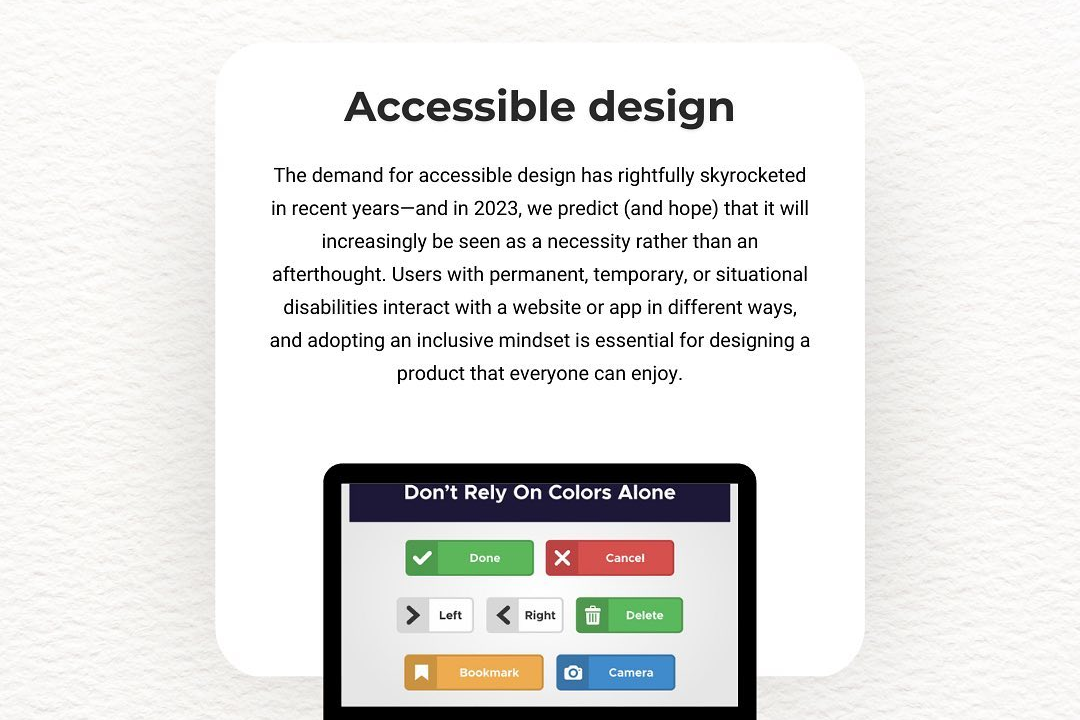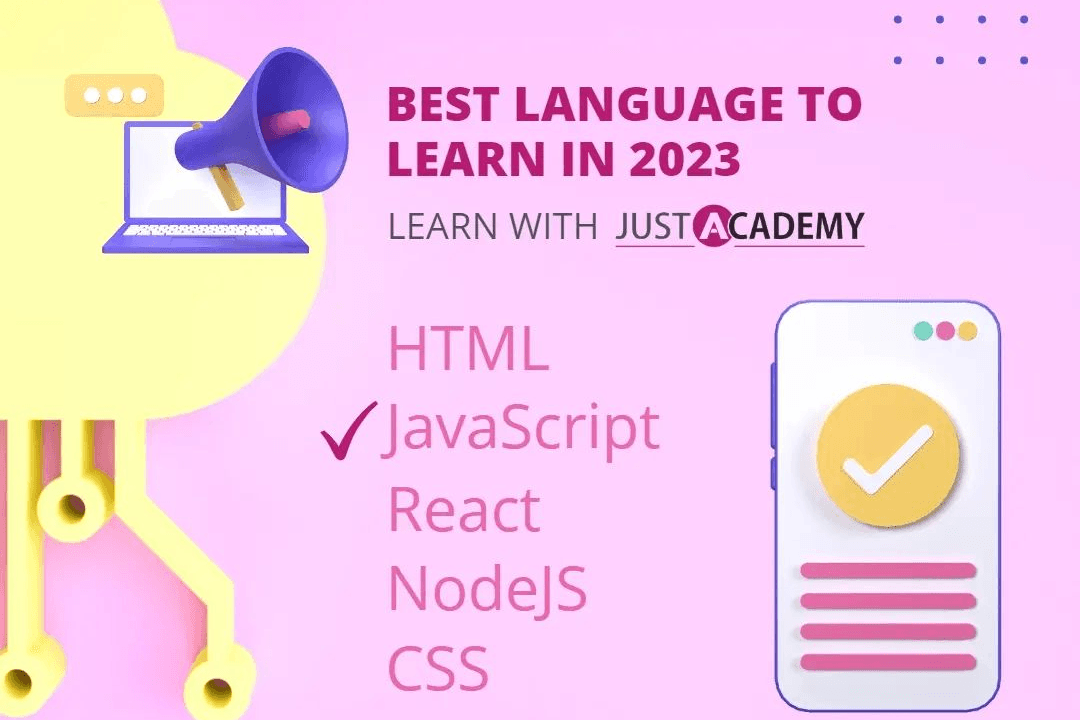Facebook Is Running On Php Or Other Program
Facebook was initially built using PHP, which allowed for quick development and ease of use. Over ti
Facebook Is Running On Php Or Other Program
Facebook was originally built using PHP, which allowed for rapid development and ease of use, making it easier for engineers to build and update features quickly. Over time, Facebook developed its own optimization layer, HHVM, to improve performance and scalability of PHP code, enabling the platform to handle billions of users efficiently. The combination of PHP’s flexibility with advanced execution environments helps Facebook deliver a fast, reliable user experience, showcasing how leveraging popular programming languages along with innovative tools can support massive, complex web applications.
To Download Our Brochure: https://www.justacademy.co/download-brochure-for-free
Message us for more information: +91 9987184296
Facebook was originally built using PHP, which allowed for rapid development and ease of use, making it easier for engineers to build and update features quickly. Over time, Facebook developed its own optimization layer, HHVM, to improve performance and scalability of PHP code, enabling the platform to handle billions of users efficiently. The combination of PHP’s flexibility with advanced execution environments helps Facebook deliver a fast, reliable user experience, showcasing how leveraging popular programming languages along with innovative tools can support massive, complex web applications.
Course Overview
This course explores how Facebook originally uses PHP, its development advantages, and the evolution of its technology stack, including HHVM, to handle billions of users efficiently.
Course Description
This course examines whether Facebook runs on PHP or other technologies, exploring its original use of PHP, the development of its infrastructure, and how it has evolved with advanced tools like HHVM to support billions of users efficiently.
Key Features
1 - Comprehensive Tool Coverage: Provides hands-on training with a range of industry-standard testing tools, including Selenium, JIRA, LoadRunner, and TestRail.
2) Practical Exercises: Features real-world exercises and case studies to apply tools in various testing scenarios.
3) Interactive Learning: Includes interactive sessions with industry experts for personalized feedback and guidance.
4) Detailed Tutorials: Offers extensive tutorials and documentation on tool functionalities and best practices.
5) Advanced Techniques: Covers both fundamental and advanced techniques for using testing tools effectively.
6) Data Visualization: Integrates tools for visualizing test metrics and results, enhancing data interpretation and decision-making.
7) Tool Integration: Teaches how to integrate testing tools into the software development lifecycle for streamlined workflows.
8) Project-Based Learning: Focuses on project-based learning to build practical skills and create a portfolio of completed tasks.
9) Career Support: Provides resources and support for applying learned skills to real-world job scenarios, including resume building and interview preparation.
10) Up-to-Date Content: Ensures that course materials reflect the latest industry standards and tool updates.
Benefits of taking our course
Functional Tools
1 - PHP (Hypertext Preprocessor): Facebook initially started with PHP as its core programming language, enabling rapid development and easy integration with web technologies. Over time, Facebook optimized PHP through the development of a custom virtual machine called HipHop Virtual Machine (HHVM) to enhance performance and scalability. PHP remains a significant part of Facebook's codebase, especially for legacy modules and ongoing development. The course offers deep insights into how PHP’s flexibility supports Facebook’s large scale operations while also exploring its limitations and the innovations built around it. Students learn how Facebook adapted PHP for high throughput and minimal latency, gaining practical knowledge of PHP based backend development in a real world, high traffic environment.
2) HHVM (HipHop Virtual Machine): Facebook developed HHVM to execute PHP faster on their servers, converting PHP code into an intermediate representation to improve performance significantly. HHVM also supports Hack, a language created by Facebook for additional static typing and improved developer productivity. The training program covers how HHVM replaced traditional PHP execution in Facebook’s infrastructure, allowing for better resource management and scalability. Students understand the architectural design behind HHVM, its role in modernized PHP processing, and how it fits into Facebook’s overall technology stack.
3) Hack Language: As an evolution of PHP, Hack introduces static typing and additional language features to improve code quality and maintainability at Facebook. The course explores Hack’s syntax, type system, and how it helps Facebook develop large scale features efficiently. Hack allows for both rapid prototyping and reliable performance, which is crucial for Facebook’s continuous deployment cycles. Trainees learn practical aspects of integrating Hack into existing PHP projects and its benefits in reducing bugs and improving code readability.
4) ReactJS: Facebook extensively uses ReactJS for building dynamic, responsive front end interfaces. The course provides an in depth look at React’s component based architecture, state management, and lifecycle methods. Students learn how React improves user experience through its virtual DOM and efficient rendering processes, making Facebook’s complex UI seamlessly interactive. The training emphasizes React’s role in Facebook’s web and mobile apps, teaching students how to develop scalable, maintainable front end applications.
5) GraphQL: Facebook developed GraphQL to optimize data fetching and improve the efficiency of client server communication. The course explains how GraphQL allows clients to request specific data structures, reducing over fetching and under fetching issues common in REST APIs. Students learn the architecture of GraphQL schemas, queries, and mutations, and how it integrates with Facebook’s numerous data sources. Hands on training covers the implementation of GraphQL servers and clients, preparing students to design flexible APIs for modern applications.
6) bioinformatics and Data Management Tools: Facebook uses various databases and data processing tools like MySQL, Cassandra, and Hadoop for managing vast amounts of user data. The course covers how Facebook customizes and optimizes these tools to handle petabytes of data efficiently. Students learn about database sharding, replication, caching strategies, and data warehousing techniques used to ensure high availability and quick data retrieval. These lessons help students understand the complexities of managing large scale data infrastructure necessary to support Facebook’s services.
7) Memcached and Caching Technologies: To improve performance and reduce load times, Facebook employs Memcached extensively for caching database query results and web data. The course discusses how Memcached operates at scale, its setup, and configuration, and the importance of caching in high traffic environments. Students learn to implement caching strategies, optimize cache invalidation, and troubleshoot cache related issues, skills vital for building high performance web applications.
8) Graph Databases and Data Visualization Tools: Facebook leverages graph databases and visualization tools to analyze complex relationships between users, pages, and interactions. The course introduces concepts of graph theory, social network analysis, and tools like Gephi and Neo4j. Students understand how to model social data, perform network analysis, and visualize large scale social graphs to derive strategic insights or improve user engagement.
9) DevOps and Automation Tools: Facebook integrates various DevOps tools and CI/CD pipelines for seamless development, testing, and deployment. The course includes practical training on tools like Jenkins, Docker, and Kubernetes, which automate the deployment of Facebook’s services. Trainees learn how to set up pipelines, monitor system health, and implement automated testing, gaining skills that ensure rapid delivery and system stability in complex environments.
10) Security and Monitoring Tools: Facebook employs a suite of security tools to protect user data and monitor system integrity, including intrusion detection systems, firewalls, and log analysis platforms. Students explore security best practices, threat detection, and how Facebook mitigates vulnerabilities. They also learn about monitoring tools like Grafana and Prometheus, which track system performance and alert teams to issues, skills essential for maintaining a secure and resilient infrastructure.
AI and Machine Learning Integration: Facebook leverages advanced AI and machine learning algorithms to personalize content, optimize advertising, and detect spam or malicious activities. The course covers foundational concepts of machine learning, data preprocessing, model training, and deployment within Facebook’s ecosystem. Students explore how Facebook uses AI driven insights to enhance user engagement and ensure platform security.
Large Scale Data Analytics (Spark, Presto): Facebook utilizes big data analytics tools such as Apache Spark and Presto to analyze vast datasets in real time. These tools facilitate quick decision making, trend analysis, and feature development. The course includes practical sessions on designing data pipelines, executing distributed queries, and interpreting analytics results at scale.
Mobile App Development Strategies: With a significant user base on mobile devices, Facebook emphasizes optimized mobile app development using React Native and native SDKs. The course discusses best practices, performance optimization, and testing strategies to develop seamless mobile experiences, ensuring Facebook’s apps maintain high performance across diverse devices.
Content Delivery Network (CDN) Optimization: Facebook uses extensive CDN infrastructure to deliver content swiftly worldwide. The course explains CDN architecture, caching policies, and edge server deployment strategies to reduce latency. Students learn how to design and implement CDN solutions that enhance user experience globally.
Real time Communication Technologies: Facebook deploys WebSocket, MQTT, and RTC (Real Time Communication) protocols to facilitate instant messaging, live video streaming, and real time notifications. The course covers these technologies' implementation, scalability, and security considerations, enabling students to build real time interactive applications.
Common Frameworks and Libraries: Facebook heavily adopts popular frameworks like Redux for state management and GraphQL clients such as Apollo. The curriculum offers hands on experience with these tools, emphasizing component driven development and efficient data handling in large scale web applications.
Testing and Quality Assurance Tools: Facebook uses advanced testing frameworks like Jest, PyTest, and continuous integration strategies to ensure high code quality. The course provides techniques for writing unit, integration, and end to end tests, as well as implementing automated testing pipelines that support continuous deployment.
Infrastructure Automation and Configuration Management: Technologies like Ansible and Terraform are employed for managing Facebook’s infrastructure at scale. Trainees learn automation scripting, resource provisioning, and infrastructure as code principles essential for maintaining consistent environments across multiple data centers.
User Privacy and Data Compliance Measures: With stringent data privacy laws globally, Facebook incorporates encryption, anonymization, and compliance tracking tools. The course covers data privacy best practices, implementing secure data storage, and understanding global privacy regulations to develop ethically responsible applications.
Big Data Visualization and Reporting: Facebook utilizes tools like Tableau and custom dashboards for data visualization and strategic reporting. The course demonstrates how to design interactive dashboards, perform data storytelling, and extract actionable insights from complex datasets, supporting data driven decision making.
Browse our course links : https://www.justacademy.co/all-courses
To Join our FREE DEMO Session:
This information is sourced from JustAcademy
Contact Info:
Roshan Chaturvedi
Message us on Whatsapp: +91 9987184296
Email id: info@justacademy.co












